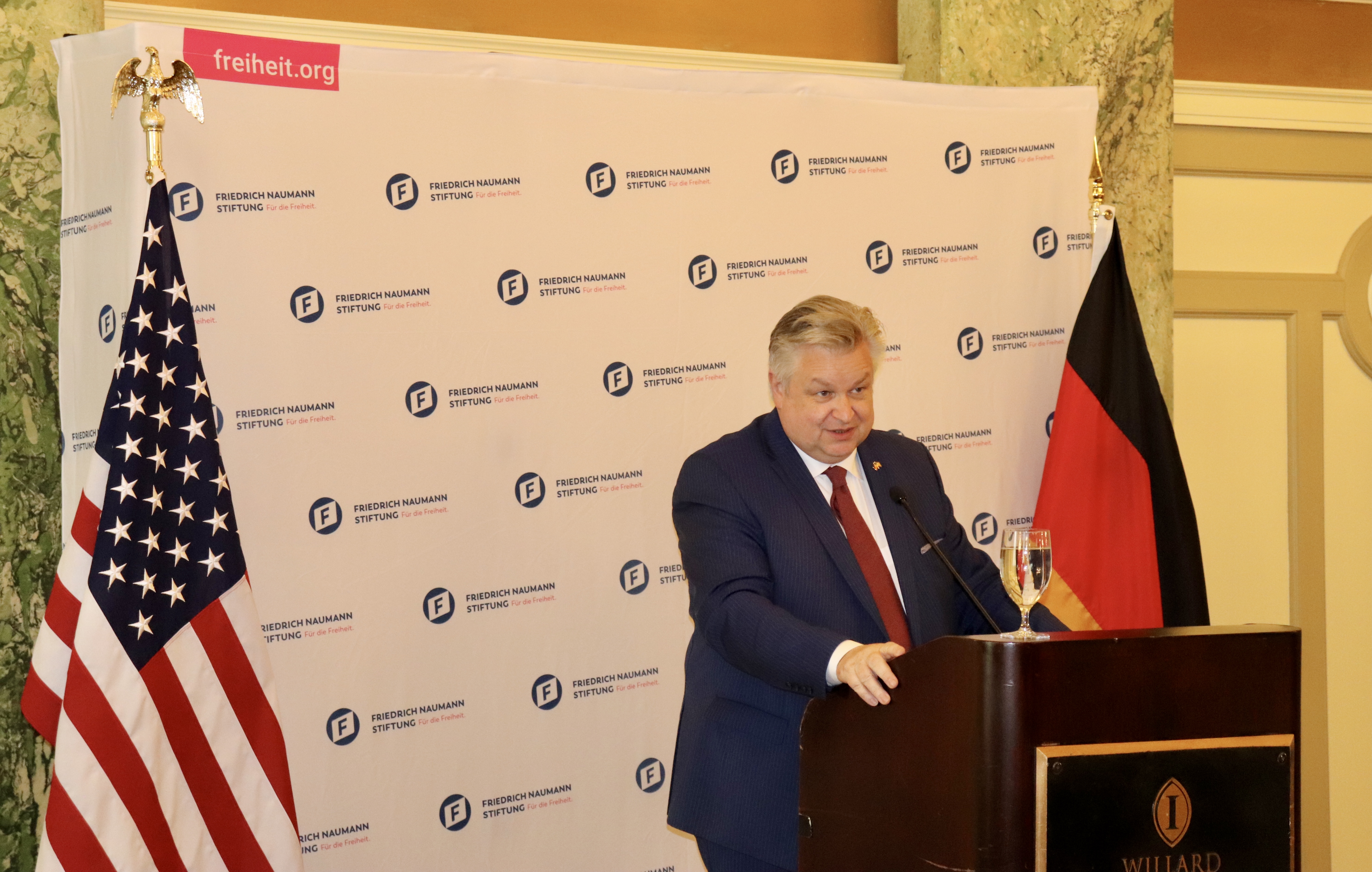Event Summary
“German Election 2021: Bracing for a Post-Merkel Era”

On Wednesday, July 14, 2021, a little over two months ahead of Germany’s federal election, the Friedrich Naumann Foundation Regional Office North America was delighted to welcome Michael Link, Member of the German Federal Parliament, Spokesperson for European Affairs for the Free Democratic Party Parliamentary Group, and Member of the Board of Directors for FNF to Washington. MP Link provided our network with a most candid insight into what the political situation in Germany might look like in a post-Merkel era and outlined the issues the Free Democrats would like to see addressed by the new government.
The election in September 2021 will be Europe’s biggest this year and will mark the end of Chancellor Angela Merkel’s 16-year reign as leader of Germany. According to the most recent polls, her party, the Christian Democrats (CDU), are leading with 28-30% of the vote, a standing that is likely to hold in the coming weeks. The Social Democrats (SPD) and Greens are each hovering around 17-19%, while the Free Democrats (FDP) have slowly, but steadily climbed to a strong position of 11-12% in the polls. While the Christian Democrats, with Armin Laschet at the helm as the party’s candidate to replace Chancellor Merkel, are poised to take the lead in forming the new government after the election, it remains unclear which parties will be included in the coalition.
Given the CDU’s and Green Party’s sizable lead, the FDP’s main objective in this election is to push for a quadripartite coalition along with the Christian Social Union (CSU), the CDU’s Bavarian sister party. The main issues the Free Democrats are trying to include on the national agenda concern economic and financial policy, namely corporate tax and pension reform. As part of its electoral platform, the FDP is also calling for stronger defense of civil liberties and individual freedom, especially in light of the ruling coalition’s unpopular handling of the pandemic, which has been defined by extreme lockdown measures.
Throughout his talk, Mr. Link stressed the fact that after four terms, Chancellor Merkel, perhaps worn down by her nearly two-decade rule, has shied away from speaking out strongly against the rising influence of authoritarian regimes, like China and Russia. She has failed to not only take a more outspoken positon on Russia’s cyberattacks on sovereign states and its territorial aggression in Eastern Europe, but has also turned a somewhat blind eye to China’s rising power over the years, especially with regard to advanced technology.
Mr. Link emphasized that after years of the so-called “grand coalition” (CDU/CSU and SPD) in power, Germany deserves both a champion for civil liberties, the market economy, and free trade, and a defender against authoritarian regimes that present clear threats against these democratic values.
The expectation then of the new chancellor in a post-Merkel era, according to Mr. Link, is to correct Germany’s current line of thinking and governance approach with a more pro-NATO, human-rights-oriented, and rules-based mindset. More important, however, will be an alliance-focused chancellor who is a strong advocate for the transatlantic partnership and for strengthening ties with the new Biden-Harris administration going forward. This will be key to rebuilding ties badly frayed under former President Donald Trump, whose hostility towards European interests made Chancellor Merkel, among other European leaders, question if Germany might be better off pursuing a go-it-alone policy without the United States. Mr. Link reiterated his unwavering support for the transatlantic alliance as being crucial to the success of both Germany and the United States, and closed his remarks on a hopeful note for a revitalized relationship between the new and incoming administrations.
